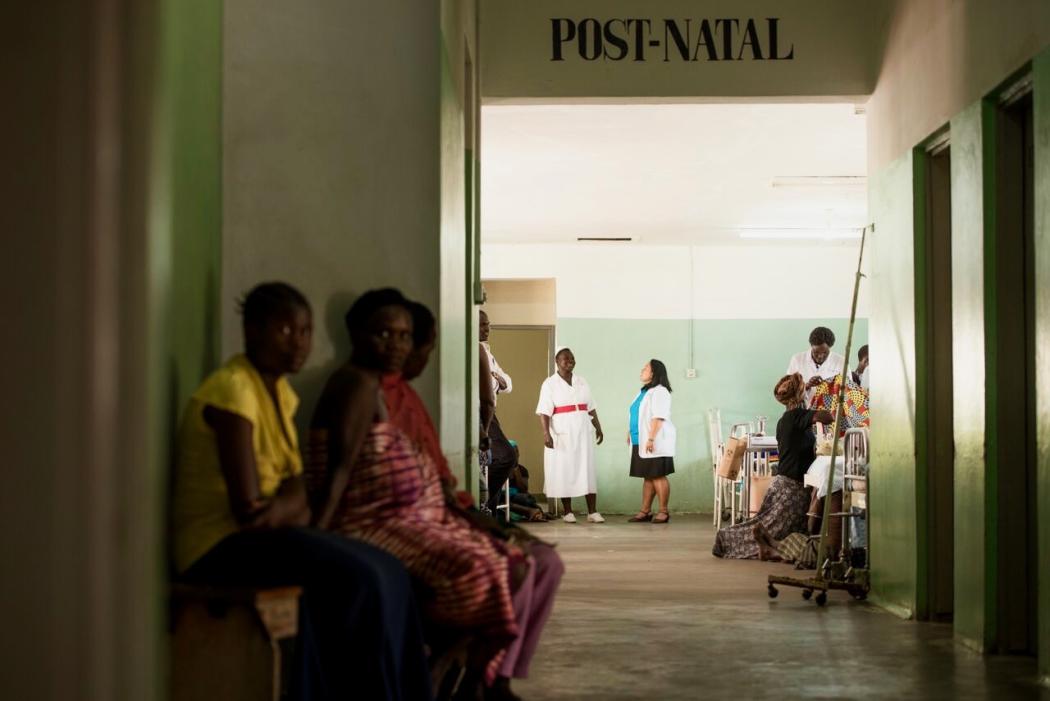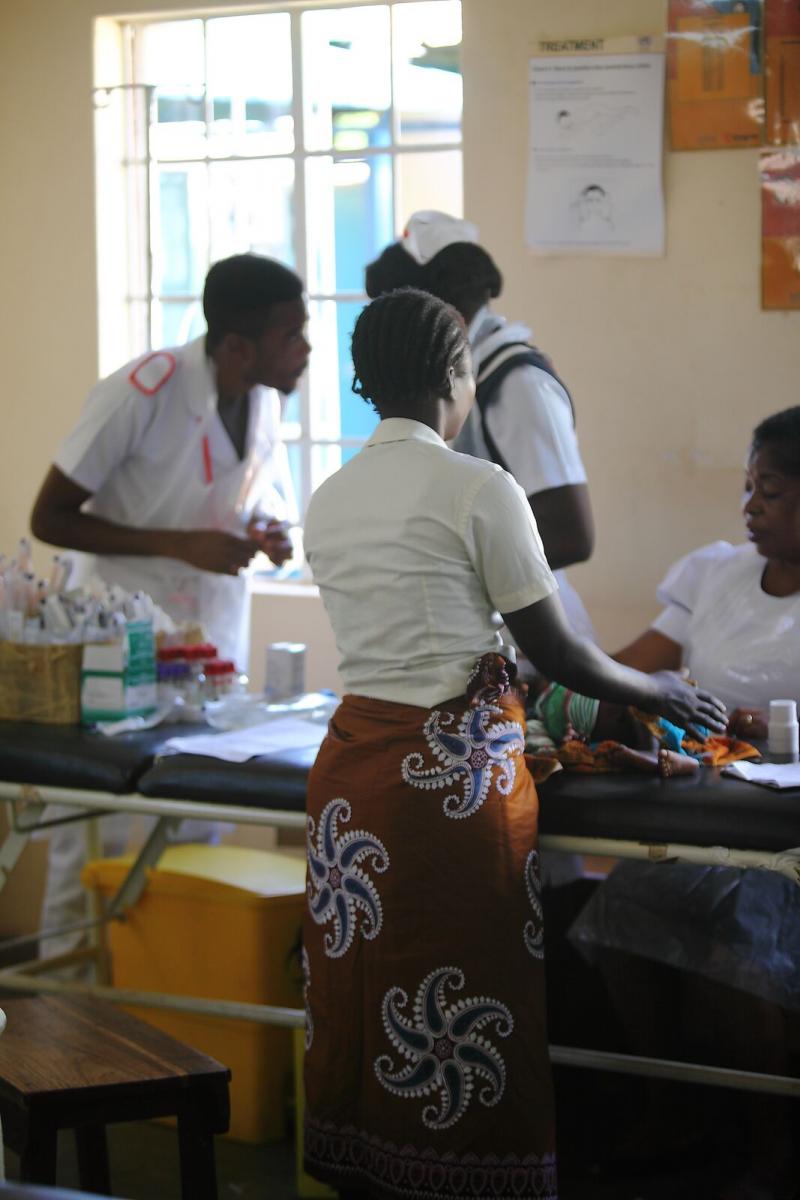Celebrate Frontline Health Workers Who Support Breastfeeding Mothers

Post-Natal ward at Arua Hospital in Arua, Uganda. Photo courtesy of Seed Global Health.
By Seed Global Health
It’s World Breastfeeding Week—a time to recognize how breastfeeding benefits the health of mothers and babies everywhere and how breastfeeding can contribute toward improved nutrition, food security, and poverty reduction. It’s also a perfect time to celebrate frontline health workers who provide pregnant women and new moms with the support they need to breastfeed.
Meet Ivony Kamala, a midwife in Tanzania. She received training from Seed Global Health educators who teach and train midwives, nurses, and doctors in sub-Saharan Africa how to support women to breastfeed. By teaching local health professionals, entire communities and countries can benefit from the “ripple effect” created when more skilled clinicians are better prepared to care for the population and then serve as educators themselves for and alongside their local peers.
Ivony I Kamala BScMW is a graduate of University of Dodoma and a former student of Seed’s educators. She's currently working with UMATI, the oldest family planning organization in Tanzania, as a Medical and Technical Services Manager. We spoke with Ivony about the importance of breastfeeding, and the many misconceptions and challenges that mothers who want to breastfeed face.
Ivony, why did you choose to be a midwife?
I get to witness miracles every day! And on a slow day, if I’m not assisting with delivering babies, I am usually conversing with patients in the antenatal care clinic, or during contraception or family planning counseling sessions. This is a great way to help women and educate them about reproductive and child health.
What are the benefits of breastfeeding that alternative feeding techniques do not provide?
Bonding is number one. As a midwife, I feel the warmth of the bond between the mother and her child as they look each other in the eye and smile. A mother’s milk is a beautiful balance—it’s the perfect temperature, it has the iron babies need for the first six months, the ions a baby needs, and more. Alternative milk is not as balanced, and we can see incidences of upset stomachs and other issues.
Breastfeeding has been known to help reduce the risk of obesity, diabetes, gastrointestinal illnesses, ear infections, and heart and liver diseases, it’s easily digested and provides babies with better tooth and jaw development.
Breastfeeding also holds numerous benefits for mothers including reducing the risk of postpartum bleeding, burning up to 500 or more calories per day, and saving time and money, and bonding with the baby.
What are some of the challenges that mothers face when breastfeeding?
If the milk won’t flow in the first 20-40 minutes they may give up if you don’t educate and counsel them properly. When you tell them it’s okay, the more the baby sucks, and the more milk she produces. Then you see the big smile on their faces as they show you their improved flow of milk. Other challenges are often due to lack of sufficient knowledge on breastfeeding, like poor latching, sore nipples, and engorged breasts. Most of these can be fixed with adequate counselling, some antibiotics, good nutrition, great hygiene, exercise, and keeping the mother as comfortable as possible.
What are some misconceptions about breastfeeding?
These are the ones I hear most:
1.“Colostrum milk is dirty milk.” That is false! I tell my young mothers that this is the first milk and the best milk your child is ever going to suck out of you.
2. “Breastfeeding a baby can be shifted from one breast to another.” I try to inform my usually young mothers about the concept of foremilk and hindmilk. Foremilk quenches and hindmilk feeds the baby. If you keep moving the baby from breast to breast you end up quenching and not feeding.
3. “Formula is better milk.” No! Unless the mother is unwell, infected by HIV/AIDS (new guidelines state that mothers on anti-retroviral treatments can breastfeed safely), or otherwise professionally advised to do so, breast milk is always best.
How can commu nities empower mothers to breastfeed?
nities empower mothers to breastfeed?
I applaud my Ministry of Health, Community Development, Gender, Elderly and Children in Tanzania, led by a female minister, Ummy Mwalimu, who allows public workers who are breastfeeding to come to work a little later and leave a little earlier, to allow time for breastfeeding so that their children can have better nutrition. I think that’s how the community empowers women—straight from the policy-makers themselves.
Second, we need to have a #NormalizeBreastfeeding movement. Female breasts have been used to sell everything from cars, electronics, and sportswear to food. When it comes to their natural purpose—breastfeeding—we need people to understand this is natural and healthy, not sexualized and disturbing.
Find out more about World Breastfeeding Week and how you may be involved here. eLearn more information about Seed Global Health’s work in Tanzania here.
Second photo: Health workers attend to a baby in Malawi. Photo courtesy of Seed Global Health.
